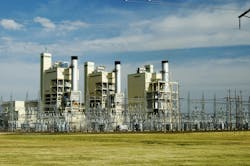Supply Chain Faces Energy Crunch
Energy reliability is emerging as the next supply chain crisis, according to the 2026 Prologis Supply Chain Outlook.
The report, conducted with The Harris Poll, surveyed more than 1,800 senior executives across the U.S., Europe, Asia and Mexico.
Almost nine in 10 companies experienced energy disruption in the past year, from price volatility to weather-driven outages.
Executives are consequently worried about power reliability, with seven in 10 saying they fear outages more than any other disruption. Yet fewer than a third of organizations have advanced backup systems in place.
Looking ahead, 90% say they would pay a premium for sites with reliable energy infrastructure.
"This report confirms what our customers are navigating every day," said Hamid R. Moghadam, co-founder and CEO of Prologis, in a statement. "Supply chains are going through the biggest reset in a generation, and it comes down to three things: energy reliability, AI and location. The new priority is resilience — building networks that can adapt and endure."
AI is already running supply chains. 70% of companies now report advanced or transformational AI adoption, with quality control and risk identification leading the way. By 2030, leaders expect AI to drive the majority of supply chain decisions across all major functions.
Regionalization is accelerating. Distributing products across major cities and key consumption areas has long been a supply chain focus. After decades of globalization, nearly six in 10 executives forecast more localized supply chains by 2030.
More than three-quarters have already implemented or are actively building regional networks, especially around consumption centers. Energy reliability (40%) now outranks labor costs (36%) as the top driver of where companies choose to locate operations.
"Energy is the new fault line in global supply chains," said. Susan Uthayakumar, chief energy and sustainability officer at Prologis, in a statement. "A majority of companies faced energy disruptions last year, and most expect their power needs to surge in the years ahead. The companies that solve for energy resilience will be the ones that stay ahead."
